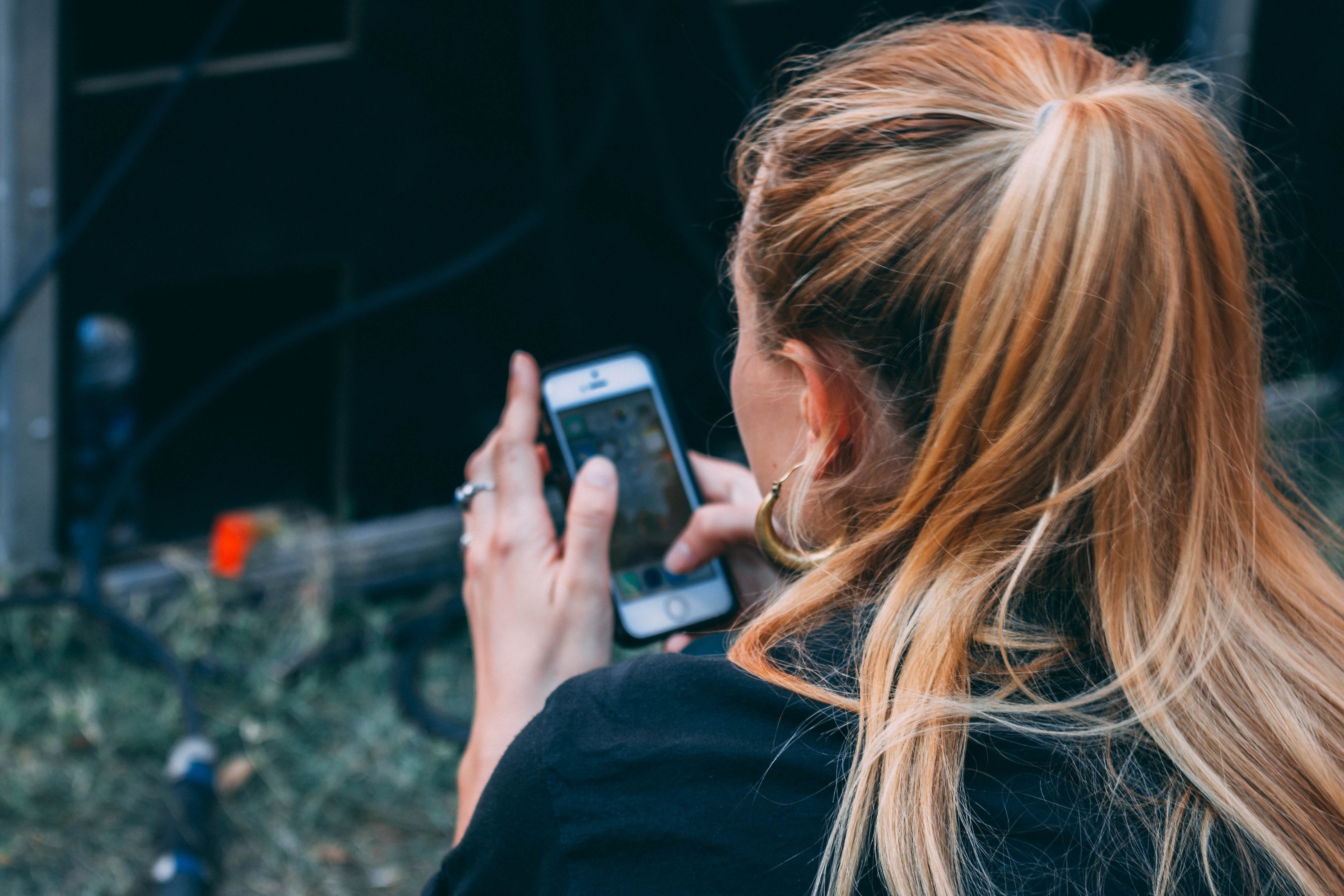Do your watches just disappear? That the days are too short for everything you need to do? But do you still have enough time to browse your phone, watch low-quality programs on TV? If you want to truly understand how you spend your time, you need to track what you do with it. Here are apps that can help you with that.
Does it also happen to you that you look at your phone for several hours every day, instead of spending quality time with your loved ones or taking the dog for a walk or exercising? If you're one of those people, it's time to make a change.
Find what's best for you
There are an infinite number of applications available. But so that you don't waste precious hours trying to find the right one for you, time management expert Kate Christie advises: "Find the one that suits you best, that is easy to use and doesn't confuse you in the first minutes."
Christie points out how important it is to choose the right tool that allows for the best collection of data about how you spend your time. Find an app that will let you quickly and seamlessly switch timers for different tasks or projects. Since we are often on the move during the day, it is easiest if you have the tracker right on your phone. And remember, the goal is to save time, so don't waste too much time testing and setting up dozens of different applications.

What should you ask yourself when choosing an application?
- Is it easy to use?
- Does it take into account "online" or "offline" activities? Or maybe both?
- Does it offer a progression and learning curve?
- How does it show data about how you spend your time? In spreadsheets, reports, or both?
- How will the data generated from your device be used?
Apps to track the time you spend on your devices
aTIMELOGGER
A paid application that will help you organize your time is suitable for iPhone and Android. A friendly, intuitive interface will help you track and organize your errands, projects, sports activities... even if they happen simultaneously. You will be able to review the report on the use of your time either in graphs or bars.
TOGGLE

A simple free tool that uses the cloud so you can log in from any device. Plugins for apps and browsers are also available.
HOURS
A time tracking app for Apple devices with free and premium options. Otherwise, it is intended for entrepreneurs and companies that account for their time, but it works just as well for personal time audits.
MOMENT
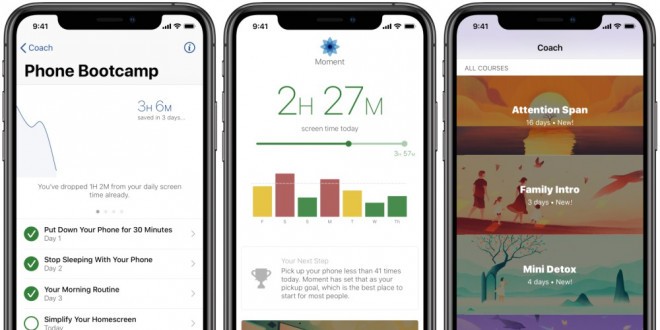
This free app will make your digital detox simple. In addition to tracking the time you spend on your phone, the app also tracks the time spent by your family members. A digital coach will help you with advice when weaning you from excessive use.
SLEEP

You can use the application on both your iOS device and Android. The app will also help you disconnect by automatically turning off alerts sent by other apps, so you'll be less distracted by your phone.
ACTIVITYWATCH
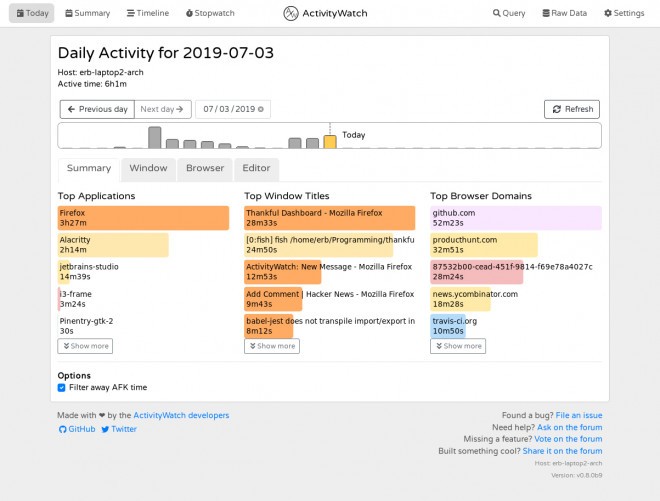
ActivityWatch is a free desktop app (Windows, macOS, Linux) that automatically tracks how you spend time on your devices. It's open source with a strong focus on privacy, and a great alternative to services like RescueTime, ManicTime, and WakaTime. It helps you track the time you spend on different projects, get rid of bad screen time habits, or simply understand how you spend your time.
RESCUETIME
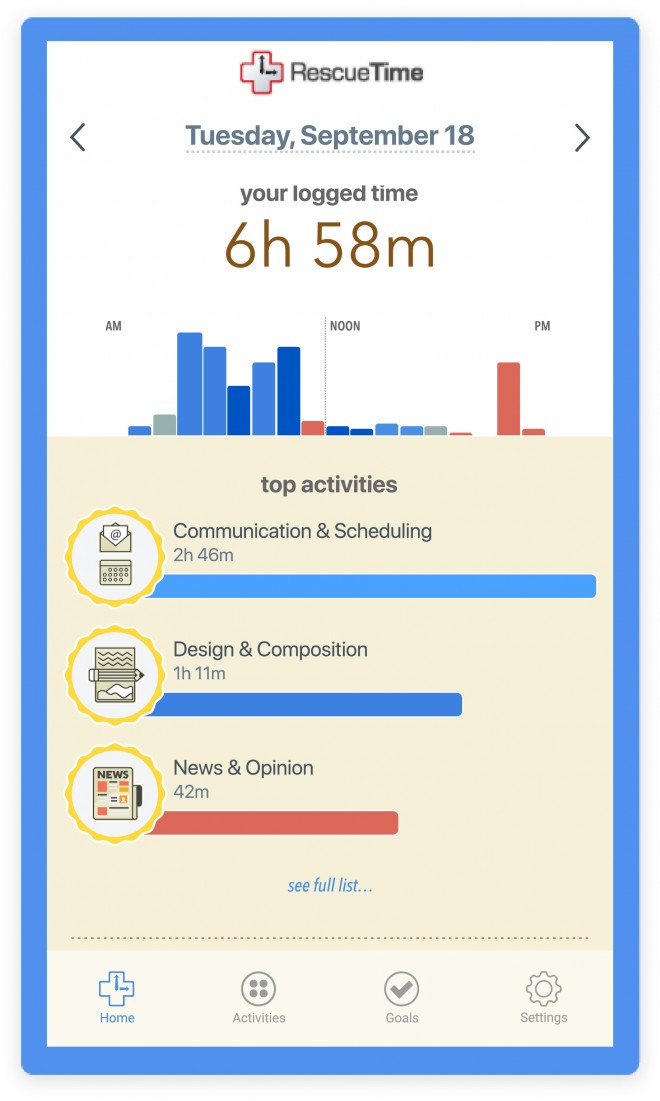
Tracking the use of the time you spend on your phone or computer, setting goals you want to achieve, blocking other distractions on your device, clearly organizing and understanding your work and free time... these are all the main features of the RescueTime app. With it, your productivity will become better, your work more efficient, and your motivation even greater. For the desktop you have the following options free app (RescueTime Lite) as a version Premium ($6 per month) and Org ($6 per month per team member). The phone also comes with a Premium version ($9 per month).
Set yourself up for success
While you could track your time spent on your devices for a whole month or at least a week, the process will probably get tedious soon. Christie's advice is to start with three-day follow-up: two working days and one day at the weekend. "That way, you will get enough data, on the basis of which you can draw conclusions about the remaining time. After all, the saying holds true that humans are creatures of habit." he says. Flora Salim, a senior lecturer in computer science at RMIT University, agrees that using time tracking tools for short periods of time is a good option. “Using a time tracking app is kind of like a sports activity app. People use fitness apps for the first few weeks, but once they get used to it, they stop using it. The same goes for time management software,” he adds. Once you've analyzed how you're spending your screen time, look at it once or twice a year to stay within the limits you've set for yourself, adds Christie.
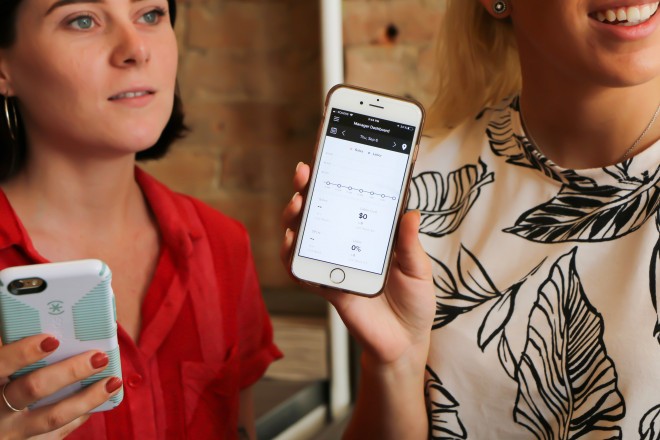
Don't underestimate the time you spend in front of screens
When it comes to wasting or killing time, screens win, because that's where we spend most of our free time. The average smartphone user looks at the screen as many as 85 times a day, says Christie.
"More than 50 percent of screen views last 15 seconds or less," he says. "If you don't record these views and take them into account in your analysis, you're doing yourself a huge disservice, because then you won't do anything to change your habits."
Being conscientious about your screen time will keep you more focused on the task at hand, and your phone may even stay in your bag or simply stay off.
Privacy and security
Each application will treat your data differently, so it is important to read the privacy policy and terms of use, warns Salimova. If you use a basic timekeeping tool like aTimeLogger, Toggl or Hours, you will manually enter information about how you spend your time, and the application will collect this information. Apps that track your digital activities collect much more information, such as about which applications you use and which websites you visit. In some cases, third parties will be able to access the data, but usually only if it is anonymized.
Some applications such as ActivityWatch, allow users to save data on your computer and not on the server, which is probably more appropriate for people concerned about security or data abuse. “Some apps log a lot of information, including which apps or websites are running in the background. This definitely affects privacy,” says Salimova.
If you're concerned about how your data might be used, consider limiting the time you spend on a particular service or requesting access to the data collected, he adds. “Let's say you want to control your week, limit it to this week. When you stop using it after a week, remove it,” he says.



